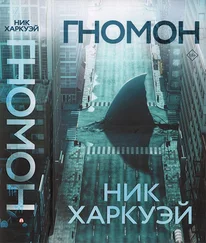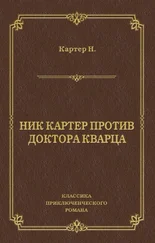‘No masks. No adventure. Just police work. It can be boring, I won’t lie to you. But…’ He hesitated. ‘You’d be with me. We could talk.’ He dried up again. ‘About stuff.’
The boy nodded solemnly. ‘Go places, talk about stuff. Find a box of matches, get a DNA sample, hairs from victim’s pullover. Investigate! Unassuming sergeant for fallen empire by day! Foolhardy boy companion! And it will be hard work. Gather evidence, data, follow leads. Good men fighting to protect and serve in a town where there is no law!’ The Sergeant winced. That was a bit on the nose. ‘But then, later… when the moon is in the sky and the evildoer thinks he is safe… Tigerman strikes!’
‘Tiger-what what?’
The boy leaned back away from him, waved his hands to indicate the bigness of this idea. ‘Tigerman! You are Tigerman!’ Huge circles. ‘Hero of Mancreu!’
‘I am not. I’m just doing a job of work.’ And I’m probably not supposed to do that.
‘For now! But you were chosen by the tiger at Shola’s grave! There is no justice, there’s just us! When it is necessary…’ The boy waved his arms again, now in a gesture which was either movie kung fu or the tricky business of changing costumes in a phone box. ‘When it is necessary: Tigerman!’ He made a whoomf noise in his cheeks. ‘Famous victory!’
‘Well, as long as you understand there will be no actual Tigerman.’
Whoomf. Hand gestures, definitely pulling open a shirt this time. ‘Tigerman!’
‘My name’s Lester. You can’t have a hero called Lester.’
‘Tigerman,’ the boy said fervently. ‘Full of win.’
‘No.’
‘Yes.’
‘No.’
‘Win. Full of. Also: famous victory.’
‘No.’
‘Yes!’
‘No!’
But the Sergeant was losing his grip on seriousness. It was funny. Joyful. And he wanted, had wanted for so long, to be a hero for this boy. Not a broken-down old fart. A cool person. The sort of person you’d hope would be your dad.
Whoomf. ‘Tigerman!’
They stared at one another without blinking.
‘No,’ the Sergeant said, just as the boy said ‘Yes!’ with equal vigour. The man scowled, the boy grinned, and that was that. Each had said his piece, the other knew where he stood, and now they would leave the matter to the world. Kswah swah.
They shook on it.
The day had been so weighty and the outcome so momentous that the boy decided a special entertainment was now called for, saying only in tones of great import and mystery that it would be ‘hunnerten pro cent zed oh em gee’. The Sergeant recognised the over-revved ‘one hundred and ten per cent’ and the ‘oh my god’ parts, but the ‘z’ quite defeated him. ‘Zombie’ was the only thing he could come up with and it seemed unlikely, unless ‘zombie’ had now acquired an additional meaning of ‘excellent’. Thinking about it, he decided that this was possible, but that he would be quite happy never knowing for sure. He agreed that he would be home at seven to receive his visitor, and they parted.
‘What the fuck, Lester? Don’t get me wrong, I’m not asking you personally, I’m asking you as a stand-in for God. But that being the case: “what”, “the”, “fuck”? Shola was like a pillar of the world. Why would anyone just kill the guy? Fucking assholes! ’
Jed Kershaw had his hands in the air for emphasis. He was a little man, and he used his hands a lot, held them high over his head and waggled his fingers. The Sergeant had initially found this odd. It made Kershaw look like a small, circular wizard casting spells which never worked, or that puppet show his sister had told him about where the puppets took off all their clothes until they finally were just hands again. But you got used to it, and the temptation to talk up into Kershaw’s palm faded away until the American was just another bit of life on the island.
Kershaw would have rejected this idea because Mancreu drove him crazy. He was forever shouting at his staff and down the phone, demanding that the place work properly, behave itself with something like sanity, function in some way which made sense, because he was the bridge between the world where things did make sense and the small circle in this blue ocean where they didn’t have to. But what really drove Jed Kershaw crazy, he said, what was going to kill him if this whole situation wasn’t resolved pretty fucking soon now, any day now, was how British Mancreu was, and maybe also at the same time if this was possible – he wasn’t sure – how French .
Kershaw had long ago realised, apparently, that dealing with Brits was tricky. You had to listen to what a Brit was saying – which was invariably that he thought XYZ was a terrific idea and he hoped it went very well for you – while at the same time paying heed to the greasy, nauseous suspicion you had that, although every word and phrase indicated approval, somehow the sum of the whole was that you’d have to be a mental pygmy to come up with this plan and a complete fucking idiot to pursue it. After six years working with the Brits in various theatres he’d come to the conclusion that they didn’t do it on purpose. The thing was, Brits actually thought that subtext was plain text. To a Brit, the modern English language was vested with hundreds of years of unbroken history and cultural nuance, so that every single word had a host of implications depending on who said it to whom, when, and how. British soldiers, for example, gave entire reports to their commanders by the way they said ‘good morning, sir’ and then had to spend half an hour telling them the detail, which was why the Brits always looked bored in briefings. They could sense the trajectory of the conversation, knew the bad news was coming now and the good news now and that there was a question on the end which needed thinking about. With a bit of work they could deduce the question, too, but they always waited politely for it to be asked so that no one felt rushed.
Originally – when he had believed it was some sort of snobbish post-colonial joke – this all had made Kershaw dislike the Brits, but now apparently he sort of admired it. His brother Gabe was a literature professor at Brown, and when Kershaw brought this up with him Gabe had nodded and said, yeah, absolutely, but you had to read T. S. Eliot to understand. So Jed Kershaw had bought The Waste Land from Amazon dot com and read it here in Mancreu. The Waste Land was a fucking terrifying document of gasping psychological trauma, and it was plenty relevant to the island, but the important point about it was that Eliot was trying to make use of something called an ‘objective correlative’, which was an external reference point everyone would understand in the same way without fear of misapprehension. Kershaw found this revealing, he said, because it was very British. Only a British poet – and, for Kershaw’s purposes, Eliot was one – would imagine that the gap between people living in the same street was so fucking enormous that you had to read the entire body of English-language poetry from 1500 to the present day in order to have a background which would allow you to communicate something as simple as ‘your dog is pissing on my lawn’ and be reliably understood. Only a Brit could be so appalled by the staggering complexities of meaning which could be found in the word ‘piss’ that he felt it was necessary to read Paradise Lost and The Mayor of Casterbridge in order to be certain he wasn’t getting the wrong end of the stick. And for sure, only a Brit would imagine that adding a huge raft of literary imagery to the sea of human emotion and history which was English would clarify the situation in any fucking way at all. All the same, there was something glorious in that complexity, in the fact that Brit communication took place in the gaps between words and in the various different ways of agreeing which meant ‘no’. But none of that made Mancreu any easier for Jed Kershaw to deal with, and he suspected but could not prove that this was because the island was also French. ‘And the French are worse, Lester, because they do all this same crap and they fucking improvise, too.’
Читать дальше
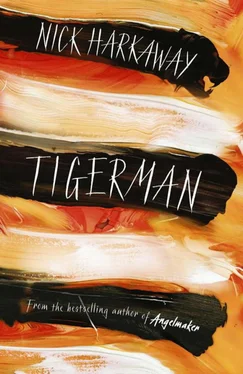
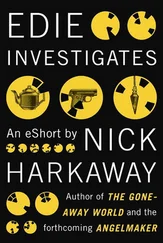
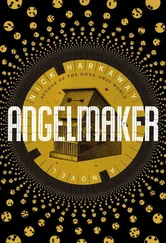
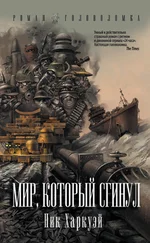


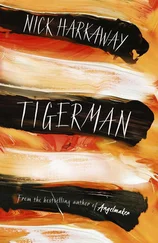

![Ник Харкуэй - Гномон [litres]](/books/400023/nik-harkuej-gnomon-litres-thumb.webp)
